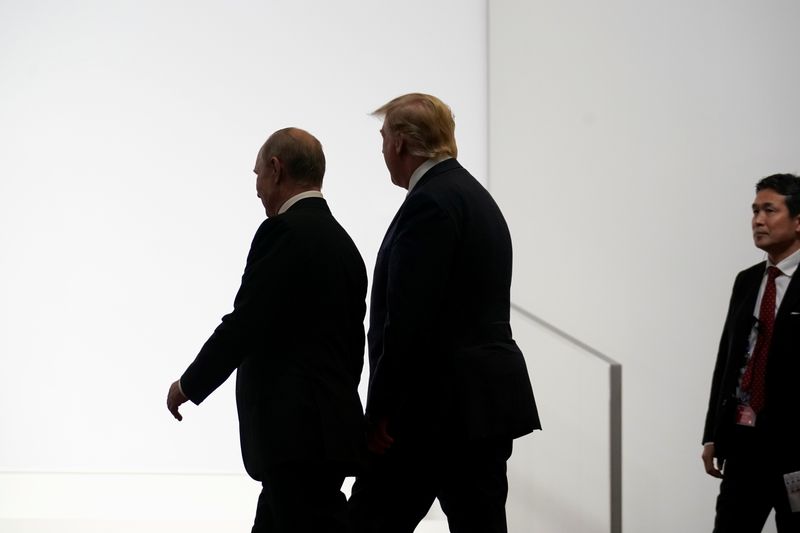Europe Races to Influence U.S. Position Ahead of Trump-Putin Talks on Ukraine
Brussels, August 11, 2025 – European leaders are intensifying diplomatic efforts to shape the United States’ stance ahead of a pivotal summit between U.S. President Donald Trump and Russian President Vladimir Putin, scheduled for August 15 in Alaska. The meeting, aimed at negotiating an end to the 3½-year Russia-Ukraine war, has sparked concerns across European capitals that Washington might push for a deal that compromises Ukraine’s sovereignty or sets a dangerous precedent for international borders. With the talks looming, Europe is rallying to ensure its voice—and Ukraine’s—is heard.
European Push for Inclusion
European Union foreign ministers held a video conference on Monday afternoon to coordinate support for Kyiv and strategize on influencing the U.S. position. Polish Prime Minister Donald Tusk revealed that the U.S. pledged to consult European partners before the Alaska summit, a commitment aimed at easing fears in Warsaw, Brussels, and beyond. “The American side has promised that it will consult with European partners on its position before the meeting in Alaska,” Tusk said, though he expressed cautious hope mixed with apprehension about the outcome.
A joint statement from leaders of France, Italy, Germany, Poland, the United Kingdom, Finland, and the European Commission emphasized that any diplomatic solution must prioritize Ukraine’s and Europe’s security interests. “The path to peace in Ukraine cannot be decided without Ukraine,” the statement declared, underscoring a commitment to Ukraine’s sovereignty and the principle that “international borders must not be changed by force.” The leaders advocated for a ceasefire as a prerequisite for negotiations, with the current line of contact as the starting point, and called for “robust and credible security guarantees” for Ukraine.
Ukraine’s Stance and European Counterproposal
Ukrainian President Volodymyr Zelenskyy has firmly rejected proposals involving territorial concessions, warning that any deal excluding Kyiv would be “stillborn” and unworkable. His chief of staff, Andriy Yermak, echoed this sentiment during meetings with U.S. Vice President JD Vance and European officials at Chevening House in the UK on Saturday, stating, “A ceasefire is necessary—but the front line is not a border.” Zelenskyy has also pushed back against ceding regions like Donetsk, Luhansk, or Crimea, which Russia has claimed since its 2014 annexation and 2022 invasion.
European officials have presented a counterproposal to Trump’s reported plan, which involves “some swapping of territories to the betterment of both” Russia and Ukraine. The European proposal, details of which remain undisclosed, insists on a ceasefire before any territorial discussions and demands that any land swaps be reciprocal, with firm security guarantees for Ukraine. “You can’t start a process by ceding territory in the middle of fighting,” a European negotiator told The Wall Street Journal.
Context of the Trump-Putin Summit
Trump announced the Alaska summit last week, following a visit by his envoy, Steve Witkoff, to Moscow, where Putin outlined terms for a ceasefire. While details are vague, reports suggest Russia demands Ukraine withdraw from Donetsk, Luhansk, and possibly parts of Kherson and Zaporizhzhia, alongside Crimea, in exchange for halting hostilities. Trump’s openness to “land swaps” has alarmed Ukraine and its European allies, who fear a deal could legitimize Russia’s territorial gains and embolden further aggression.
The White House has indicated Trump is open to a trilateral meeting with Zelenskyy, but current plans focus on a bilateral summit with Putin, as requested by the Kremlin. This has heightened European concerns, with EU foreign policy chief Kaja Kallas stating, “Any deal between the U.S. and Russia must have Ukraine and the EU included, for it is a matter of Ukraine’s and the whole of Europe’s security.”
European Fears and Strategic Moves
Europe’s urgency stems from the potential ramifications of a U.S.-Russia deal bypassing Ukraine and the EU. Leaders fear that conceding to Putin’s demands, such as recognizing Russian control over annexed territories or Ukraine abandoning its NATO aspirations, could undermine international law and regional stability. NATO Secretary General Mark Rutte emphasized that any peace deal must avoid legally recognizing Russia’s control over Ukrainian land, drawing parallels to post-World War II arrangements with the Soviet Union.
Recent meetings, including Vance’s discussions with UK Foreign Secretary David Lammy and European representatives, yielded “significant progress” toward aligning positions, according to a U.S. official. However, some European officials remain wary, with one accusing Europe of being reduced to a “spectator” if Trump and Putin reach a deal independently. Posts on X reflect similar concerns, with some suggesting European efforts might be symbolic rather than binding, given the high stakes of U.S.-Russia diplomacy.
Russian Perspective and Challenges
Russian officials have pushed back, accusing Europe of attempting to “thwart” Trump’s peace efforts. Former Russian President Dmitry Medvedev called European leaders “Euro-imbeciles” on social media, while Foreign Ministry spokeswoman Maria Zakharova made inflammatory remarks about EU-Ukraine relations. Putin’s willingness to meet Trump is attributed to joint U.S. and allied pressure, including Trump’s threats of new sanctions and tariffs on countries like India for purchasing Russian oil. However, experts like Tatiana Stanovaya from the Carnegie Russia Eurasia Center remain skeptical, warning that any agreement could be “devastating” for Ukraine if it involves significant concessions.
What’s Next?
As the Alaska summit approaches, European leaders, including French President Emmanuel Macron and UK Prime Minister Keir Starmer, continue to engage with Trump and Zelenskyy to ensure a “just and lasting peace.” The EU’s Monday meeting will likely refine its strategy, with further outreach to Washington planned. Meanwhile, fierce fighting persists along Ukraine’s 1,000-km front line, where Russian forces control roughly one-fifth of the country, complicating ceasefire prospects.
For Ukraine and Europe, the stakes are clear: a deal without Kyiv’s involvement risks undermining its sovereignty and European security. As Zelenskyy stated, “The end of the war must be fair, and I am grateful to everyone who stands with Ukraine.” Whether Europe’s diplomatic sprint can influence Trump’s approach remainsබ
